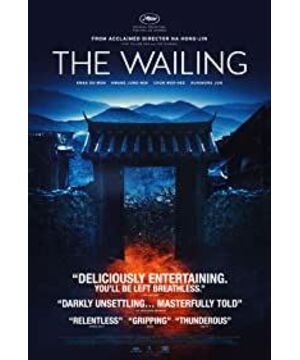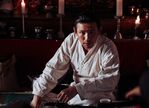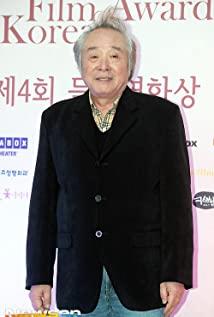In a trance, I remember the book "The Origin of Fear" by Krishnamurti that I borrowed from the library many years ago, and the insights in it are confirmed one by one in this film. Why are we afraid? After human beings wielded the sword of science and decapitated many puzzles, we still cannot rely on wisdom to get rid of the complex problem of fear. Fear is one of the causes of war and killing, and no religion in the world is capable of solving this problem. We have invented many assistive devices (both physical and mental) to help us fight our fears, but no one is ever free from fear. The open ending of the film actually points to a person's weakness for fear, even though he has the support of certain beliefs. Aside from the biological instinctive fears, the fears that remain in the original human memory and even written into genes, most of people's fears are psychological. The social attributes of man make him always under pressure from the society. The greater the living space provided by society, the less oppression he feels, and vice versa, the greater the sense of fear. Therefore, in a closed and narrow social group, the individual's sense of fear must be very strong, and his sense of security rests on the help of other individuals. This tacit understanding forms an effective but fragile social ecology, because any external factors may disrupt the ecological balance. This is also the reason why Taohuayuan did not retain the Wuling people and permanently closed the door to the outside world.
In this film, the arrival of the Japanese is a disturbing factor for the villagers to break the balance. Doubts, suspicions, and rumors multiply the sense of fear. The mind occupied by fear is in a disordered and contradictory state. Therefore, it must be violent, distorted, and full of aggression. Therefore, one after another tragedies follow, which is a matter of course. But why is it so easy for external unsettling factors to arouse a sense of fear in an individual? The cause remains within the individual itself. Subconsciously, we all worry about some things, abstract things do not cause fear, fear must be associated with some concrete things. For example: Worry about losing your job, worrying about not having enough food and money, worrying about the eyes of your neighbors, worrying about losing everything you have, worrying that you are not as happy as others, worrying about illness and pain, worrying about your wife or husband cheating, worrying about no one to love or No one loves them, they worry about their children, they worry about death... Zhong Jiu in the film has a lot of worries. He worries that his boss is dissatisfied with him and makes up excuses for his lateness. The sexual ability cannot satisfy the wife and let her buy tonic for herself, and so on. Worry forms fear, fear intensifies worry, thus falling into an endless cycle, the prediction of worry comes true, and the sense of fear is amplified step by step until hysterical. Furthermore, worry stems from the division of life in the past, present and future. The fear of the past is accumulated by memory, which dominates the present and guides the future. The future is even more worrying because it is beyond human control. In fact, the vast majority of our fears stem from worrying about the unknown future. We urgently need a clear answer, and this answer will always hide and seek with us in the future. This is the most brilliant point of this film. What is right and what is wrong is always only unknown in this mountain. People, unfortunately, can only be imprisoned for life by fear. When he finds that there is nothing he can do about it, the gods come in. The gods are shaped by fear rather than piety, and the ritual of worshiping the gods is a dense collection of fears. The Korean-style dance gods and Japanese-style sacrifices in the film suffocate the viewer. But in the end, it can only be an alternative to individual fear. After the gods leave, fear will return in revenge. In particular, when a person has established his own thinking logic and has his own beliefs and propositions, he very much does not want the existing way of life and content to be disturbed, and the interference will drive life from a known state to an unknown state, he must. It was difficult and painful to establish a new cognition of life in the huge fear, the trust in the new cognition was not stable, and the new interference appeared cruelly, and the result could only be torn apart again and again.
The opening of the film meaningfully quotes a passage of Jesus in the Gospel of Luke, but in the film it is said through the mouth of the devil, and the purpose is to reveal the tearing of individual cognition by this interference. Having said that, I still feel that the things to be solved in this film are too complicated and rich. All heroes have their own opinions. I can only feel that Director Luo Hongzhen has been consecrated by the first battle!
View more about The Wailing reviews











